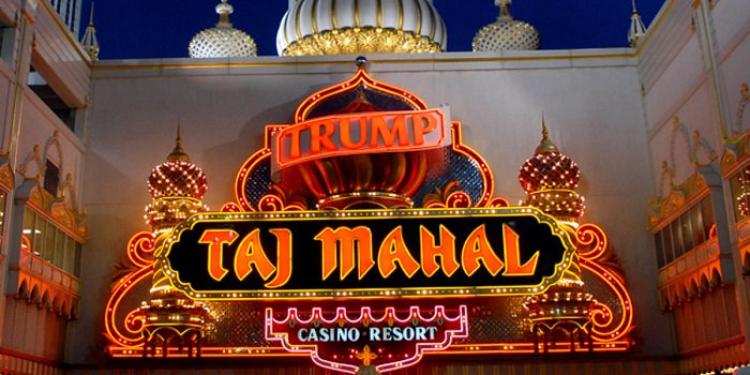New Casinos Slated to Open in the US, Despite Saturation
Posted: May 29, 2015
Updated: October 6, 2017

Government officials see no issue with approving new casino licenses to developers, although there are already plenty of gaming facilities.
Atlantic City has experienced some troublesome times in the past 2 years, which has seen a number of high-profile casinos shutting down after years of operation. Some of the big names include, Trump Plaza, Showboat, Revel and Atlantic Club among many others.
• Gaming earnings are being shifted around
• Atlantic City faces competition from many cities
• Pennsylvania boasts impressive establishments
The fate of the iconic Trump Taj Mahal, a casino that houses one of the most expansive US poker rooms, remains in the balance by a thread.
The unfortunate developments in Atlantic City signalled a downturn in the north-eastern US gaming industry. Nevertheless, that didn’t stop certain states in the region to go ahead and consent to new casino halls. What is even more interesting is that the casino market seems to be quite saturated, but the general viewpoint on the matter is that new ones would be welcome.
Too many casinos poses a problem
Representatives from the Spectrum Gaming Group, one of the leading gaming research and professional services firm, believe that there will be a large number of new casinos opening up in the northeast by the end of 2015, while some more will be added in the following years. Eugene Johnson and Joe Weinert, both form the Spectrum Gaming Group, are certain that there will be 60 casinos in the northeast by the end of the year and a further 5 will be developed in the next 3 years.
The main reason for the planned increase in gaming facilities is that state officials stand to make a great deal of money for their respective states in terms of revenues and also create vast job opportunities. The sentiment was also echoed by Wendy Hamilton, the general manager of Sugar House Casino located in Philadelphia. She argued, “There’s not a politician in the land that is going to choose a tax increase when gaming looks so good on paper.” Hamilton also highlighted that there are currently plenty of casinos in the region for the residents of each state to reach within a short time. “We have to avoid the siren song. There’s not a zip code in the region that doesn’t have four or five gambling options within an hour.”

In spite of recent gambling news that showed figures for casino earnings in New Jersey were up this year, it still remains a risky market in the state. And the uncertain economic climate could shift to other neighbouring states as well, despite the fact that they are far from some of the worst casinos in the area. Should casino expansion proceed with the current plan, Hamilton believes that it is possible that other casinos outside of New Jersey could also potentially shut down.
She didn’t hold back her views on the reality of the gaming industry, by boldly stating that ”Pennsylvania doesn’t care what happens to New Jersey, and New jersey doesn’t care what happens to Pennsylvania.” The general manager of the Sugar House Casino also seemed concerned with the current state of affairs, as she believes there is only so much gaming revenues companies can earn, considering the limited market conditions at the moment. “It just can’t go on forever. There’s a finite amount of gaming revenue out there. We are in a very volatile time and we’re in a frenzy of gaming expansion. It needs to stop.”
Competition is fierce in the gaming industry
The current president of Dover Downs casino (located in Delaware), Ed Sutor, said the whole north-eastern region experienced negative financial results in the first 3 months of 2015. “New Jersey, Delaware, Pennsylvania, West Virginia and Maryland – the entire market is down.” He believes the primary culprit for this is market saturation, which has been the reason why money seems to be going around in circles, from one hand to the next.
“That is, friends, saturation. You’re just moving money around. You bring in a new operator and the money just moves around and the entire market doesn’t go up.” Sutor also expressed his viewpoint on the imminent arrival of three fresh casinos to his state, by declaring that it “makes no sense.” Although he could be right to a certain extent, New Jersey has in fact recorded unexpectedly positive earnings recently in terms of gaming revenue. So his remarks may be a little off, according to mobile casino reports.
Pennsylvania has taken over much of the casino revenues and jobs from Atlantic City in recent times, which is one of the reasons why the latter has been struggling lately. In addition, the once iconic gaming hub will now receive even more competition from casinos in Ohio and Maryland, according to the chairman of the Pennsylvania Gaming Control Board, William Ryan Jr. He remarked, “We in Pennsylvania know the competition we now confront will always be there, and the days of double digit growth in that area are probably gone.”












